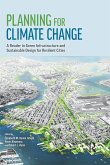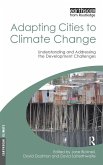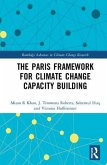Spatial planning has a vital role to play in the move to a low carbon energy future and in adapting to climate change. To do this, spatial planning must develop and implement new approaches. Elizabeth Wilson and Jake Piper explore a wide range of issues in this comprehensive book on the relationship between our changing climate and spatial planning, and suggest ways of addressing the challenges by taking a longer-sighted approach to our preparation for the future. This text includes: an overview of what we know already about future climate change and its impacts, as we attempt both to adapt to these changes and to reduce the emissions which cause them the role of spatial planning in relation to climate change, offering some theoretical and political explanations for the challenges that planning faces in the coming decades a review of policy and legislation at international, EU and UK levels in regard to climate change, and the support this gives to the planning system case studies detailing what responses the UK and the Netherlands have made so far in light of the evidence ways to help new and existing urban developments to reduce energy use and to adapt to climate change, through strengthening the relationships between urban and rural areas to avoid water shortage, floods or loss of biodiversity. The authors take an evidence-based look at this hugely important topic, providing a well-illustrated text for spatial planning professionals, politicians and the interested public, as well as a useful reference for postgraduate planning, geography, urban studies, urban design and environmental studies students.
Hinweis: Dieser Artikel kann nur an eine deutsche Lieferadresse ausgeliefert werden.
Hinweis: Dieser Artikel kann nur an eine deutsche Lieferadresse ausgeliefert werden.








